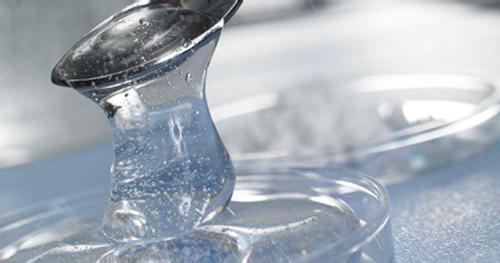
In modern medicine, the prevention and management of postoperative complications remain the emphasis of clinical practice. Postoperative adhesions, being one of the prevalent and challenging postoperative complications, pose a significant threat to patients’ recovery. Hyaluronic Acid (HA), a natural polysaccharide, has demonstrated excellent potential in adhesion prevention in recent years.
What Are Postoperative Adhesions
Postoperative adhesions refer to the abnormal adhesions between tissues or organs after surgery, which commonly occur in the abdominal cavity, pelvic cavity, and joints. The adhesions can lead to severe outcomes such as chronic pain, intestinal obstruction, and infertility, impairing the quality of life and surgical outcomes of patients. Therefore, the development of effective anti-adhesion materials and strategies has been a significant direction of medical research.
Properties and Advantages of Hyaluronic Acid
Hyaluronic Acid is a naturally occurring polysaccharide of high molecular weight commonly present in human connective tissue, skin, and joint fluid. Its unique physical and biological properties bestow a number of benefits in medical applications:
- Very High Biocompatibility: HA is very compatible with human tissue, and its degradation products are not toxic, minimizing the risk of immunologic response or rejection.
- Unsurpassed Water Retention: Its high water-binding capacity preserves a moist postoperative environment, which promotes healing.
- Biodegradability: HA will naturally degrade within the body, eliminating the need for secondary removal and minimizing postoperative care complexity.
- Anti-Inflammatory Activity: HA possesses anti-inflammatory activity, lowering postoperative inflammatory responses and therefore lowering the occurrence of adhesion formation.
Mechanisms of Hyaluronic Acid in Adhesion Prevention
Hyaluronic Acid acts efficiently in preventing postoperative adhesions through various mechanisms:
- Physical Barrier Effect: Produces a protective barrier above the operative field, keeping neighboring tissues apart and not in direct contact and fibrosis, therefore reducing adhesion formation.
- Promotion of Tissue Repair: Supports cell migration and growth, contributing to the reconstruction of normal tissues and optimization of the environment for healing.
- Modulation of Inflammatory Response: By inhibiting excess inflammation, HA reduces deposition of extracellular matrix in fibrosis, additionally reducing adhesion dangers.
Forms of Hyaluronic Acid Preparations
Depending on the requirements of surgery, HA could be formulated in various types to provide optimum anti-adhesion effects:
- Gels and Films: In large surgical areas, they provide long-lasting physical barriers.
- Injectable Solutions: In minimally invasive surgeries or point application, they are more convenient.
- Composite Materials: Combined with other bioactive substances for general anti-adhesion and healing effects.
The quality of these products is closely related to the quality of the hyaluronic acid raw materials. Stanford Chemical Company (SCC) offers a comprehensive range of pure hyaluronic acid powders with high, medium, and low molecular weights. These products undergo strict quality control to ensure medical-grade purity.
Contact Us
If you are interested in the application of HA in adhesion prevention or wish to learn more about related products and collaboration opportunities, please visit our website or contact our professional team.
Related Articles:
How is Hyaluronic Acid Powder Made
All SCC products are produced through bacterial fermentation. They are produced based on Good Manufacturing Practices (GMP) and are approved for medical use. The procedure is as follows:
- Select a proper bacterial strain (e.g., Streptococcus).
- Ferment the bacteria in a fermentation tank to produce HA.
- Filtration, precipitation, and ultrafiltration of the fermented mixture.
- Purify the hyaluronic acid and dry to powder.
The safety of hyaluronic acid also depends on product and formulation quality. Utilizing products from reputable brands and reading the ingredient list serves to ensure the purity and effectiveness of the hyaluronic acid used. SCC provides high-purity, molecular weight customizable sodium hyaluronate powder.
